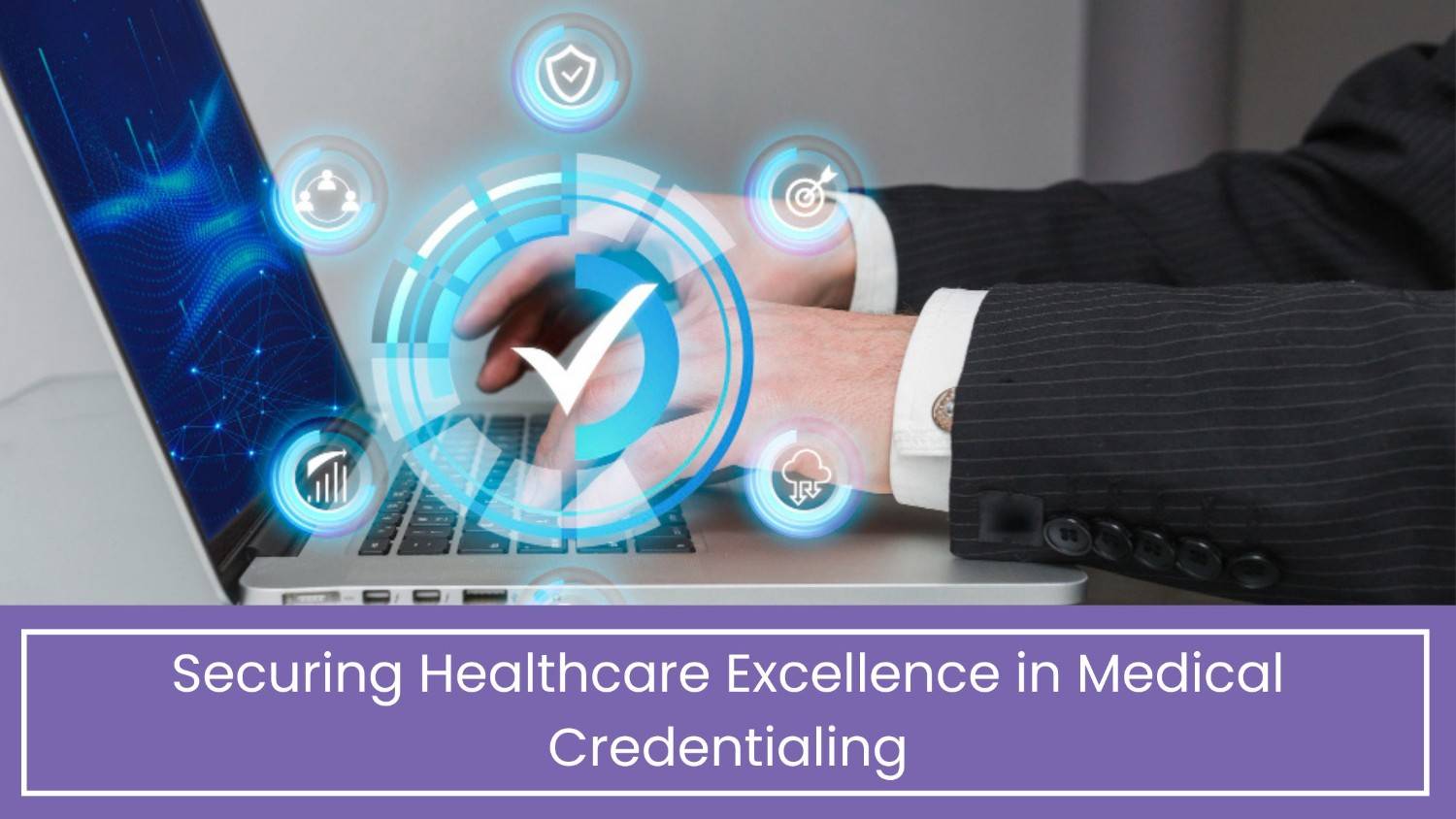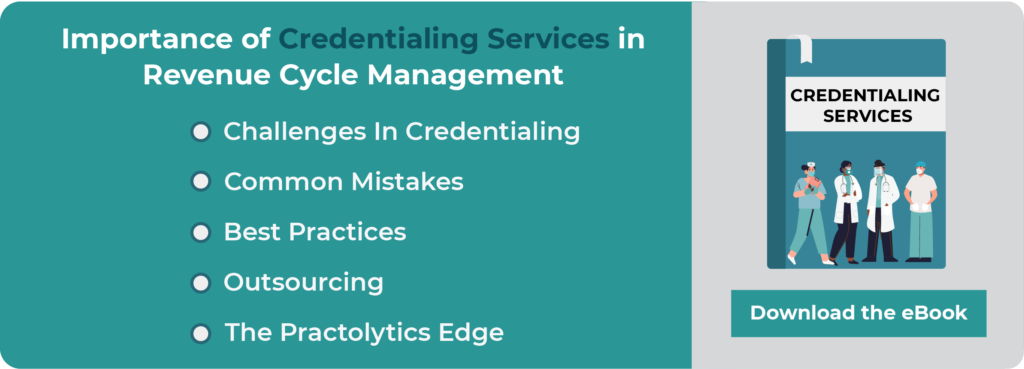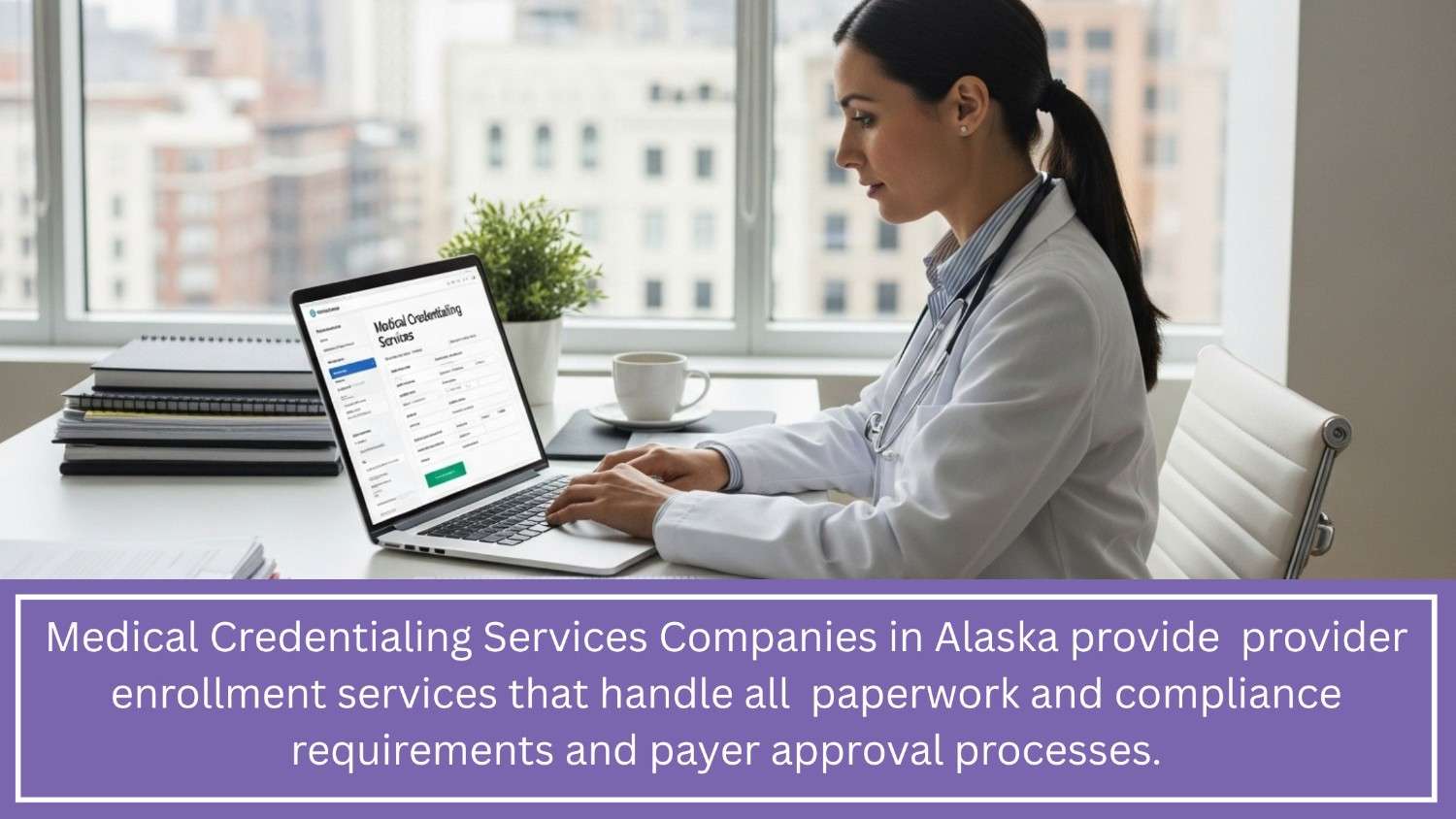Securing Healthcare Excellence in Medical Credentialing
Securing Healthcare Excellence in Medical Credentialing plays a fundamental role in ensuring the qualifications and competence of healthcare professionals, including physicians and medical specialists. This process involves a thorough assessment of a provider’s education, training, experience, and professional background to uphold high standards of patient care. By verifying credentials and maintaining strict evaluation procedures, medical credentialing helps ensure that only skilled and qualified professionals deliver safe, effective, and high-quality healthcare services.
Table of Contents
What is Healthcare Credentialing?
Medical credentialing, or healthcare credentialing, is a methodical process involving the scrutiny and evaluation of the qualifications, training, experience, and background of healthcare professionals. This extensive process applies to a wide range of healthcare providers, including physicians, nurses, dentists, pharmacists, therapists, and various allied health experts. Healthcare facilities, insurance companies, and regulatory bodies utilize credentialing to ensure the competence and qualifications of healthcare providers, thus ensuring they possess the necessary skills and knowledge to provide safe and efficient care.
The Importance of Healthcare Credentialing in Healthcare
Ensuring Patient Safety
One of the primary objectives of medical credentialing revolves around safeguarding patient well-being. Patients entrust their lives and health to healthcare providers, underscoring the necessity to verify that those administering care possess the essential qualifications and experience. Credentialing fulfils the crucial role of uncovering potential issues in a provider’s history, such as legal complaints, regulatory sanctions, or criminal records, which could compromise patient safety.
Adherence to Regulatory Standards
Credentialing goes beyond patient safety, extending into a legal requirement in various healthcare settings. Healthcare institutions and insurance companies must adhere to state and federal regulations, and credentialing assists in maintaining compliance, averting legal consequences.
Assurance of Quality
Credentialing maintains the quality of healthcare services by validating the educational background, training, and experience of healthcare providers. This ensures that only capable individuals are authorized to deliver care, ultimately benefiting patients and the healthcare system.
Enhancing Provider Reputation
Credentialing plays a pivotal role in shaping and preserving a healthcare professional’s reputation. Those who successfully navigate the credentialing process are more likely to gain the trust and respect of patients, peers in the healthcare community, and insurance providers. A strong reputation can lead to a more fulfilling and successful career.
Healthcare Credentialing Process
The healthcare credentialing process is a multifaceted and time-intensive procedure involving several stages to ensure the qualifications and competence of healthcare providers. Let’s break down the key steps involved in this process:
- Application Submission
Healthcare providers begin the process by submitting a comprehensive application to the credentialing organization. This application includes details about their education, training, employment history, government licenses, certifications, and any previous medical malpractice claims or disciplinary actions.
- Verification of Credentials
The credentialing organization, often a medical staff office or credentialing committee, meticulously verifies the information provided. This involves cross-referencing the provider’s qualifications with educational institutions, licensing boards, and past employers to ensure accuracy and currency.
- Review of Work History
The organization conducting the credentialing process closely examines the provider’s work history, encompassing past and present employment, clinical privileges, and employment gaps. A thorough review helps identify inconsistencies or potential issues with the provider’s professional background.
- Checking References
References, including previous employers and colleagues, are contacted to gather feedback on the provider’s clinical skills, professionalism, and ethical conduct. This step assesses the provider’s overall character and competence.
- Malpractice Claims and Disciplinary History
Credentialing committees investigate the provider’s history of malpractice claims and any disciplinary actions taken against them. This information is vital in determining the provider’s risk level and ensuring patient safety.
- Board Certification
For physicians, board certification from a governing body is a crucial component of healthcare credentialing. It confirms a physician’s expertise and competence in their speciality, and the credentialing organization verifies the physician’s board certification status.
- Final Review and Decision
After gathering and evaluating all necessary information, the credentialing committee conducts a final review to determine whether the provider meets the organization’s credentialing standards. A formal decision is made to either grant or deny credentialing, and this decision is communicated to the provider.
- Ongoing Monitoring
Credentialing is not a one-time process. Healthcare organizations and insurance firms continually monitor medical professionals to ensure they maintain the required standards. This includes regular re-credentialing to ensure the provider’s qualifications are up-to-date and their practice remains free of new issues.
In short, Healthcare credentialing stands as a vital process in the healthcare industry, safeguarding patient safety, ensuring regulatory adherence, upholding quality healthcare, and enhancing the reputation of healthcare providers. This thorough and meticulous procedure, spanning from application submission to continuous monitoring, plays a pivotal role in determining which professionals can be entrusted with delivering high-quality patient care.
Healthcare providers, healthcare organizations, and insurance companies collaborate to create a healthcare system that prioritizes patient well-being. Given the dynamic nature of healthcare and the need for ongoing oversight, medical credentialing remains an indispensable practice, with its importance poised to continue growing in the years ahead.
Moreover, outsourcing credentialing is an increasingly popular choice for healthcare organizations aiming to streamline the intricate and time-consuming process. Delegating this responsibility to a trusted credentialing company allows medical professionals to free up valuable time for patient care and other core activities. Outsourcing can enhance efficiency, reduce administrative burdens, and ensure compliance with evolving regulatory requirements.
In the healthcare industry, medical credentialing is critical for patient safety, regulatory compliance, and provider reputation. Practolytics, the one-stop solution for your medical billing needs streamlines this complex process. We partner with healthcare organizations to ensure efficient, compliant, and patient-focused credentialing, freeing up valuable time for medical professionals. Our commitment is to support the industry’s growth and success.
Talk to Medical Billing Expert Today — Get a Free Demo Now!






